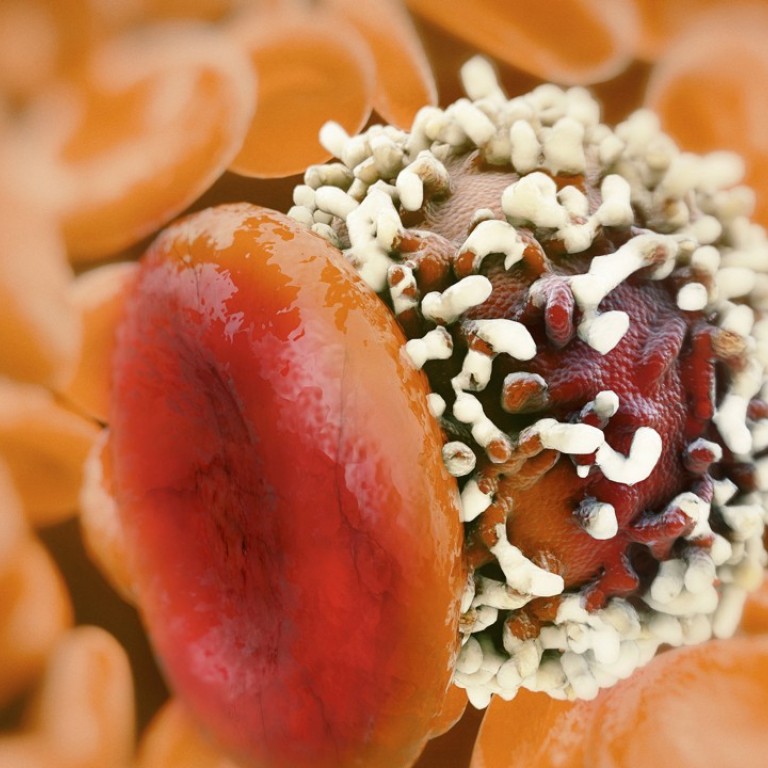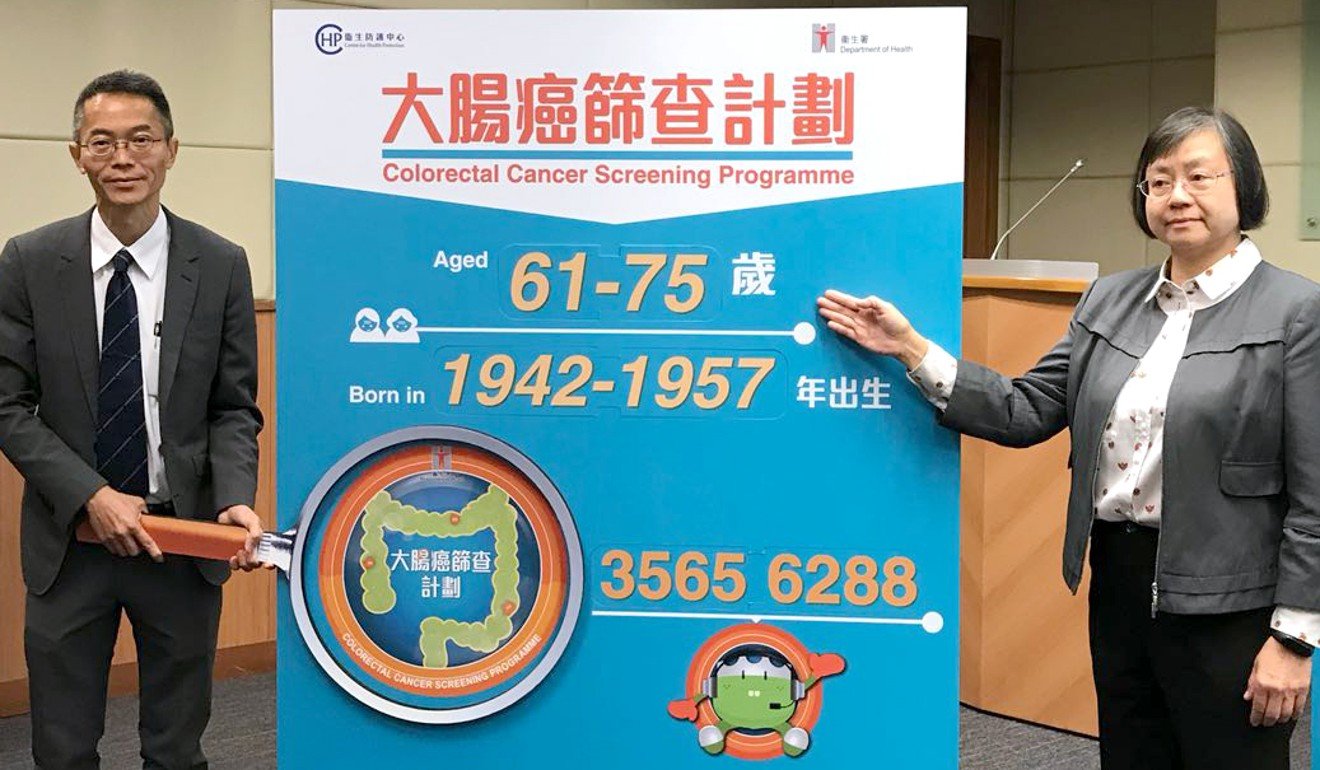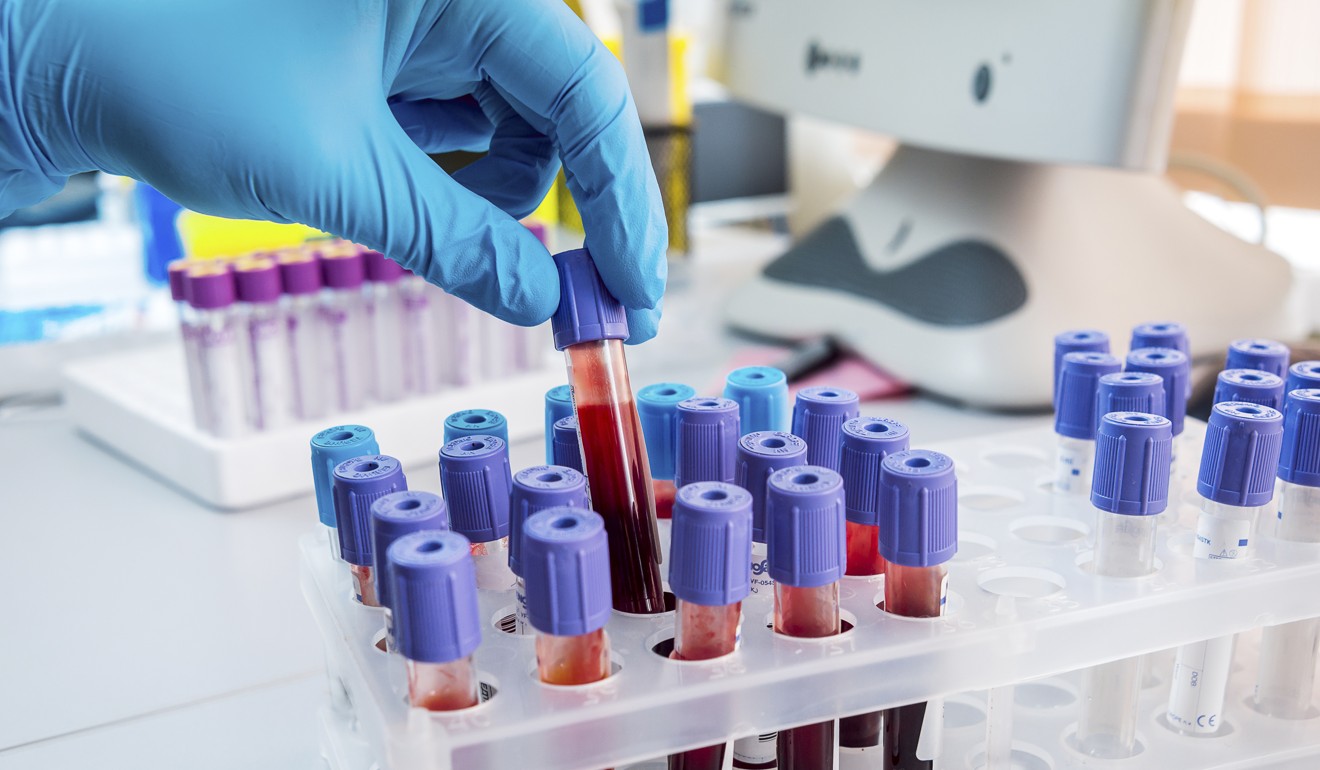
Subsidised screening for more than 2 million Hongkongers hopes to tackle colon cancer
From next Monday, those aged 61 to 75 will pay no more than HK$100 for a faecal test
The first of 2.55 million people can get heavily-subsidised screening for colon cancer from next week, with health authorities announcing a five-year plan on Monday to combat the city’s most common cancer.
From next Monday, those aged 61 to 75 – or born in the years 1942 to 1957 – will pay no more than HK$100 for a faecal test to detect blood in the stool and no more than HK$1,000 (US$127) for a colonoscopy at participating clinics.
Subsidised screening would be extended to younger Hongkongers aged between 50 and 61 at a later date, costing the government HK$940 million in all.
“I encourage all those eligible to participate in this programme,” said Dr Wong Ka-hing, controller of the department’s Centre for Health Protection.

The programme followed a successful pilot scheme for those aged 61 to 70 launched in September 2016 to fight the second most-deadly cancer in the city.
Colon cancer is hidden [and] you don’t feel anything. By the time you recognise the symptoms … then it’s already quite advanced
Of the 68,774 people who took a faecal test as of March 27 this year, 13 per cent or 8,724 people tested positive for blood in their stool. Of those, 7,203 had a colonoscopy, of which 458 – or 6.4 per cent – were found to have cancer.
Wong added the pilot programme had identified people who had colorectal cancer but were not showing symptoms, as well as those at an increased risk of the disease.
Of those who had a colonoscopy, 68.9 per cent or 4,966 people were found with precancerous polyps.
Dr Regina Ching Cheuk-tuen, head of CHP surveillance and epidemiology branch, said: “Their polyps have now been removed which shows the importance of timely screening.”
She said colon cancer picked up by screening “tended to be in the earlier stages, making treatment more effective and straightforward, leading to a higher chance of cure”.
She explained why colon cancer was hard to detect without screening.
“Colon cancer is hidden [and] you don’t feel anything. By the time you recognise symptoms such as abdominal swelling, poor appetite or bleeding in the stool, then it’s already quite advanced.”
In 2015, 5,036 colorectal cancer cases were diagnosed, accounting for 16.6 per cent of all new cancer cases in Hong Kong.

The subsidised screening programme will be rolled out in three phases with Wong estimating that 2.55 million people will benefit. Subsidies will range from HK$280 for a faecal test to HK$8,500 for a colonoscopy.
Those who have questions about the scheme can call a dedicated hotline on 3565 6288.
In 2016, colon cancer claimed 2,089 lives, or 14.7 per cent of all cancer deaths, the second most common cause of cancer death in Hong Kong, after lung cancer.
The number of those who took the faecal test rose to 78,000 as of last Thursday, of the 820,000 expected beneficiaries of the pilot programme.
Ching said the 9.5 per cent participation rate was low compared with the original target of 30 per cent as seen in other places with national colon screening programmes.
“Part of the response [in Hong Kong] is because of the culture. This is something new and they’d rather wait for symptoms to occur before they go and find a doctor.”

